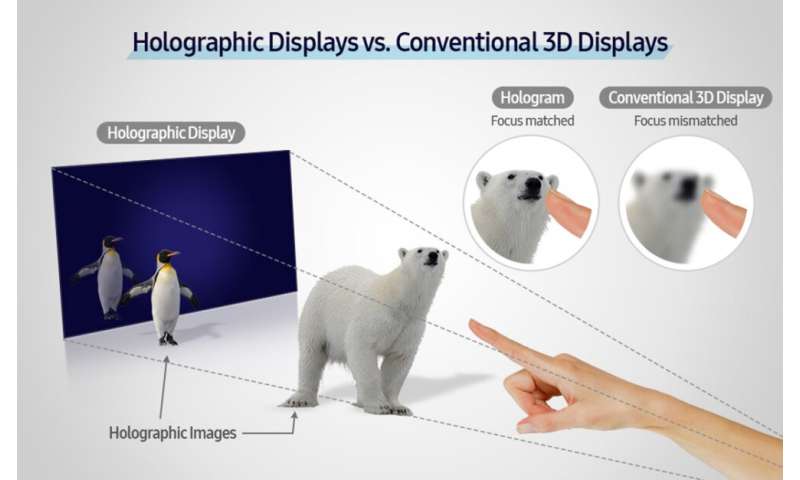Best of Last Week: Music without headphones, a holographic video display and using melatonin to treat COVID-19

It was another good week for space research, as a team at Lawrence Livermore National Laboratory found evidence in molybdenum isotopes showing that the solar system formed in less than 200,000 years approximately 4.5 billion years ago. Also, David Tholen, an astronomer at the University of Hawaii, reported that his team at the American Astronomical Society's Division for Planetary Sciences had found evidence that the Apophis asteroid might be more likely to strike the Earth in 2068 than previously thought. And a team with members affiliated with several institutions in the U.S. found evidence of more water in Mars' outer atmosphere being destroyed than was thought, providing a possible explanation for where some of the water on the surface of the planet went.
In technology news, Israeli company Noveto Systems, debuted transmits sound via ultrasonic waves, eliminating the need for headphones. Meanwhile, a combined team from the University of Cincinnati and Purdue University announced that they had created an application called HAMLET—a platform to simplify AI research and development. Also, a team at Samsung developed a slim-panel holographic video display. And a team at the ARC Center of Excellence in Exciton Science created a new type of machine learning model that predicts the power-conversion efficiency of materials used in next-generation organic solar cells.
In other news, a combined team of researchers from the University of Wisconsin-Madison and the University of North Carolina at Chapel Hill found that the SARS-CoV-2 virus has mutated in a way that might make it more susceptible to a vaccine. Also, a team of researchers from Japan, China and the U.S. found evidence that a large volcanic eruption caused the largest mass extinction in Earth's history.
And finally, if you are looking for ways to mitigate the impact of a COVID-19 infection, you may not need to look any further than your local pharmacy. A team at the Cleveland Clinic found that melatonin may be a viable treatment option for COVID-19. It is an over the counter hormone sold as a sleep aid.
© 2020 Science X Network